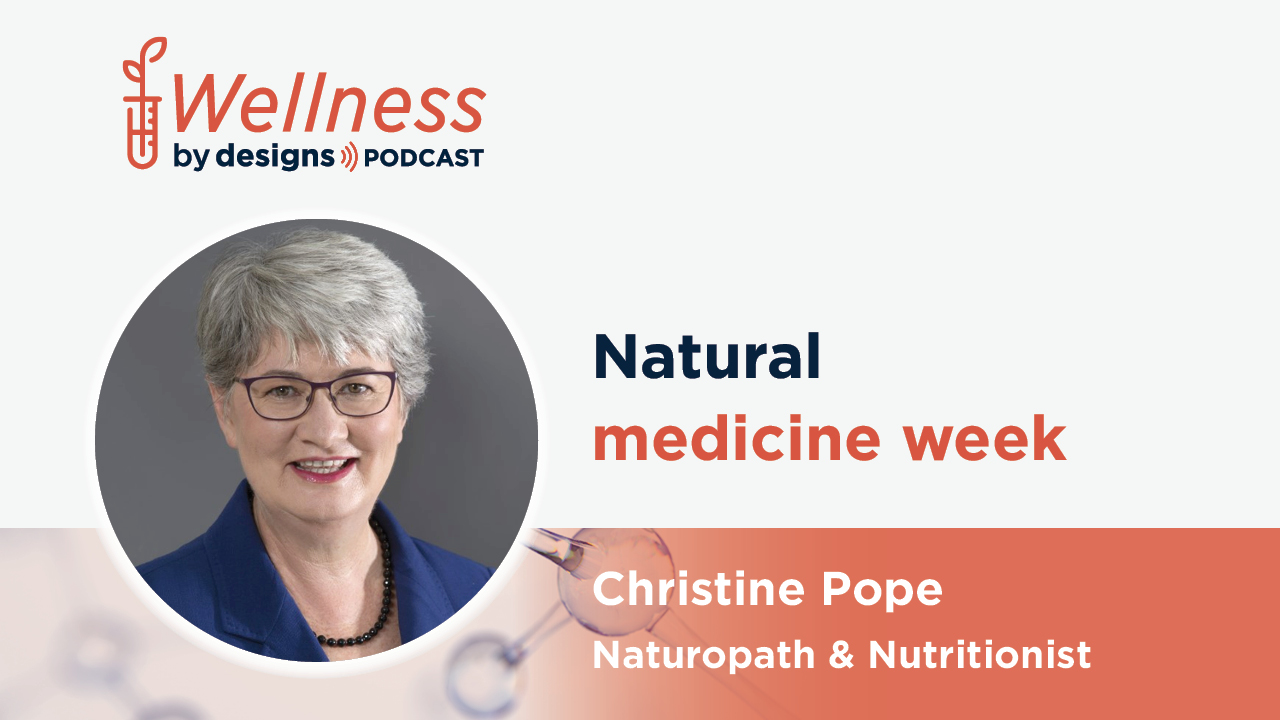

<
In our latest podcast episode, we have the honour of conversing with Christine Pope, a Naturopath and Nutritionist who is a renowned authority in the field of natural medicine.
Christine has played a crucial role in the establishment and execution of Natural Medicine Week, and we’re thrilled to have her share her vast expertise and perspectives with our audience of health practitioners.
With COVID-19 affecting the world, we discuss its impact on Natural Medicine Week and the industry as a whole.
Christine shares valuable information on the 2023 agenda for the event and the many benefits that practitioners can reap from participating. If you want to learn how to get involved, you don’t want to miss this episode.
Join us as we delve into the fascinating world of natural medicine and the incredible contributions of Christine and her team at the ATMS.
About Christine:
Christine Pope is a Naturopath and Nutritionist based at Elemental Health at St Ives in Sydney. Her practice is focused on chronic disease and healthy ageing, and she is the author of Ageing Outrageously, an eight-part online program.
For the past six years, Christine has served as an ATMS Director and Treasurer as well as Chair of the Marketing Committee. Her focus has been on improving the awareness of natural medicine and assisting practitioners in building successful and busy clinics. To this end, she has rolled out two separate initiatives, Natural Medicine Week, which this year had over 3.9 million views on social media and Transition to Practice, a face-to-face event to assist students and recent graduates in building their practice.
Connect with Christine:
Website: christinepopenutritionist.com
Transcript
Introduction
Andrew: This is “Wellness by Designs,” and I’m your host, Andrew Whitfield-Cook. Joining us today is Christine Pope, a naturopath and nutritionist. And today, we’ll be discussing Natural Medicine Week, a collaboration between the ATMS that supports industry and the public. Welcome to “Wellness by Designs,” Christine. How are you?
Christine: I’m well, thanks. Yourself?
Andrew: Absolutely fantastic. Now, tell us a little bit first about your career, which is interesting, and also your responsibilities within the ATMS.
Christine: Okay, so, I’m probably one of the few people in the industry that had a lengthy career in investment banking and venture capital before they moved into natural medicine. And a lot of people think that that’s actually quite a significant change. And it really wasn’t because the sort of roles I was doing in investment banking were very much focused on risk management. So, it was understanding what the risks were and managing them appropriately. So, actually, it’s not really that different with natural medicine. It’s understanding what the risks are for that person with their current lifestyle and diet and trying to encourage them to manage it appropriately. I probably had a little bit more authority and better compliance when I was in investment banking.
Andrew: So, we’ve been talking about risk management with health, like it seems… I know you get corporate, you know, programs that are run for health, but it seems to be on an ad hoc and voluntary basis. You are talking about something that you had a decent pool to force them with.
Christine: Well, I’m talking about… I was actually based in lending property and finance, so I actually had more pull in that sense because it was the golden rule of banking. She who has the gold makes the rules. Unfortunately, I’m not sure there is a golden rule in healthcare where I can continue to make the rules quite as effectively, but, you know. That’s why I was saying, you know, the compliance could be a little better in investment banking because there was a document and a structure, and was agreed what each side would do. So, you know, and I suppose with healthcare, we try to do the same things. We try to decide, you know, this is what the client should be doing and this is the best strategy for them to optimize their health. But I think as most of us are aware, it’s not always as straightforward as that. And sometimes change takes quite a long time.
Andrew: So, we’ve seen other people move from a corporate arena into a health arena, and it’s brought with them like a particular set of skills that isn’t often seen, which is awesome to see. But can I ask you to take us through like what was the attraction to natural medicine, and your career, and how you ended up, you know, what is it, secretary as ATMS.
Christine: Treasurer of ATMS.
Andrew: Treasurer, sorry.
Christine: And yeah, I’ve actually got two not-for-profit boards. So, look, basically, when I’m looking back at that career, because I am very comfortable with finance, and, you know, managing meetings and all that sort of thing, I did find when I first went into clinic, I had no problems with case taking and developing a relationship with clients. And so, the more challenging part of it was actually deciding what I needed the clients to do and figuring out what the easiest way to get them to do it was. But a lot of those skills naturally translated into board positions. And I started with a local homeopathic association where basically my practitioner at the time recruited me because she knew I had a finance background, and that was a rare find in homeopathy. From there, the then-CEO of ATMS asked me if I would take on a casual role on the board, and then I was actually elected by the members because I have a feeling that not many people actually wanna serve as treasurer. And I don’t understand it because, actually, financials are black and white.
They’re easy to understand, you know, it’s the results. That is what it is. And, you know, managing the process of being a treasurer is, you know, start the year with doing the budget, then you organize the audit, you make sure that your actual, your risk management is in shape, and that the contracts you signed are actually what you think they were. So, there’s a lot of transition of those skills quite naturally. And from there, I was actually then asked to serve as a director of COSBOA, which is a small business advocacy group. And all the members of COSBOA are actually associations. So, it’s not individual businesses. And again, a lot of those skills translate, although I have to say it’s been a massive learning curve in terms of dealing with politics and politicians. So, that’s been a little more challenging, I have to say, on every front.
Andrew: That’s a whole podcast, isn’t it?
Christine: I know, I know. We won’t go there today because I am still a student in that sphere.
Andrew: All right. So, Natural Medicine Week, let’s go into it. What exactly is it, and why was it set up?
Christine: So, Natural Medicine Week was started about seven years ago, and what we really wanted to do was promote natural medicine to the general public. And the concept was, you know, let’s define what natural medicine is. So, we broke it into three areas, which was, at the time, body works. So, all your massage therapies, osteopathy, chiropractic, that shiatsu, that sort of thing. Ingestives, which clearly is anything you put in your mouth. But, you know, homeopathy, herbal medicine, naturopathy, again, those practices, and then Chinese medicine, because I’m not sure whether we found it harder to define, but, you know, it’s that combination of you’ve got practitioners who are herbalist, but there are also people who are using needling. And that’s a very specific skill. So, you have to be careful about how you explain that. It’s also a registered profession. So, there was more restrictions on what we could do. So, again, we are very careful to define it separately.
And ATMS has a broad church of members. So, there are a lot of members who will have multiple practices. You know, they will be a massage therapist and a naturopath, or in my case, I’m a naturopath, a nutritionist, and a homeopath. So, actually having something that promoted all the different ways we practice so that people would understand it and understand what it was they needed and what could help them. So, that was the other thing. It’s like whenever you hear about something on the radio, it’s, ooh, I have, you know, arthritis, could this help me? And what we wanted to do was create a way in which people could figure that out more easily and then go and see a qualified practitioner. Because that was the other thing. We really wanted to make sure that we were promoting practitioners who are not always as some, let’s say, good, you know, they may be great at being practitioners, but they’re not always quite as good at promoting themselves and explaining to people what they do in a simple way.
Andrew: So, just along the lines of Natural Medicine Week, like you started off, you said seven years ago, all going along merrily, and then, what, three odd years ago now, this thing came along, which shut down the globe…
Christine: I know.
Andrew: …the planet.
Christine: It was a massive, massive shock to the system because we were already so well advanced on planning and we had a website out there with all the activities on, and then, all of a sudden, it’s like, “Ooh, we are not gonna be able to do that. What do we do?”
Andrew: Well, and how did you circumnavigate, like, how did you pivot? How did you handle the restrictions that were placed on practitioners, you know, the physical therapists and things like that? That must have been crushing for them, not just emotionally, but obviously as a business.
Christine: Oh, look, it was a really… You know, as a director of ATMS, it was a really difficult period because you really, you know, different states had different rules. So, it was almost… And when you’re talking March 2020, when a lot of this evolved, we were looking at an event in 10 weeks’ time and what did we do? You know, we had 50 events organized. In fact, I think we were close to 100 events in person around the country that year. So, what we did do is we suggested to people that they pivot to digital wherever possible. So, if you were gonna do a talk, do a webinar. And, look, I think it was actually great for a lot of practitioners in developing the skills to go online because clearly, that was where, as it turned out, we all needed to be for the next couple of years, particularly, if you were somewhere like Victoria where, you know, you were locked down for eight months, or something absolutely ridiculous. And, you know, this was also a way that they could interact with clients and provide support.
So, because of the webinars I did in Natural Medicine Week, the first year, the second year, I started running some small workshops online, something I’d never done before. But because I’ve kind of got my head around Zoom, and setting up Eventbrite, and integrating all of these platforms, it became a lot easier to interact with people in a different way, and sometimes, let’s face it, a far more affordable way for a lot of people. So, it actually provided a lot of access. And there are a couple of practitioners who did an amazing job with this. Rachel Aldridge, who specialized in gut health, and she’s in Northwestern Sydney. Yep. You know, Rach, everyone does. She did a great job at setting up her webinars and promoting them, and it really helped boost her practice. And she’s now practising almost entirely online because of that because she’s developed a national profile.
Andrew: There was a few people that way before COVID even presented, they’d already thought about this digital presence, this online presence, and thought about how they were going to help patients from far away who couldn’t reasonably visit them. So it was from a more sort of solid business sense that they approached it about, you know, how do you reach people in the UK if they can’t fly out here? But jeepers had seen them in good stead, you know, because by the time COVID came along, there was no switch to push, they were just, bang, they were already online. It was another day.
Christine: I think there were a few practitioners who were in that position, but I was gonna say there were a lot of practitioners who we actually had to coach through the process. It’s like, it’s great that you set up an online webinar, but how are people gonna register for it? How do you get them on your marketing list so that they can become clients in the future if they want to get hold of you? So, you know, it was simple things like, you know, the agency that we work with, Zadro, did a great job at, you know, have you got Eventbrite set up, or Humanitix, or something so that you can capture people’s details and ticket it easily, and you don’t need to manage all that going forward. So, I think all these platforms, and, you know, frankly, I’m a huge fan of Zoom because it did actually give practitioners a really cost-effective platform in which they could run, you know, 100-person meeting or a webinar in reality, and interact with those people.
Andrew: Yeah, yeah. And I’m gonna say call out to Zoom. Yeah, sorry to interrupt. Call out to Zoom. And that was that over COVID, they really did help a lot of people by not charging them for the larger meetings. Whereas, obviously, now business is business, they have to recoup costs. So it helped a lot of people get through quite a difficult time. But enough of COVID, like we can harp on about COVID for ages, but how did that affect how Natural Medicine Week evolved and presented to, not just practitioners, but also the public?
Christine: The major difference it made was with digital, we could actually be a lot more effective with our promotions and we could target it much more efficiently. So, the problem was when we were running a lot of events in-person in clinics, it was really hard to figure out how to promote it to when you’ve got someone in Bundaberg and someone in Box Hill in Victoria, and how do you target the local market that would actually be able to come to this event. So, running digital events, we’re actually able to do it far more effectively, and we could send it. So, we’ve been using a relationship partnership with Wellbeing, and we send out a number of emails or EDMS, and we will actually give them a list of all the events, and for people, if they’re doing it online, doesn’t matter where the event facilitator is based because they can just attend it from their computer.
The other thing I think I found is that because of COVID, a lot of people were much more comfortable with Zoom and using online platforms because they had no choice. So, it actually gave people… It did improve the access for a lot of people. And I think I run a webinar every year, which is Natural Medicine First Aid. So, I cover a little bit of first aid prescribing from a homeopathic perspective, and also kind of your herbal toolkit that it’s, you know, a good idea to have at home. And I would have people from Tasmania all the way through Northern Queensland on the call, which would make for a really interesting vibe, and, you know, it truly made it a national event without having to do a roadshow round all the capitals, which would be lovely, but I don’t have a budget for, unless someone wants to sponsor me.
So, you know, I think that was one of the big changes. The other thing too is we really, we took the opportunity and we upgraded the website so that people could search more easily for events on topics they were interested in. We had the content organized by themes. So, we’d have, you know, one day was women’s health, one day was gut health, you know, so there were different themes for each day of Natural Medicine Week. And that actually, I think, helped people find the content we put on. We have been able to build the content over a number of years. So, we now have, you know, a huge section of recipes from practitioners that are tried and tested. We’ve got all the blogs with lots of content about, you know, which natural medicine will work for which conditions, or which you should think about to support you. So, there’s a lot more content there, and that really helps, of course, drive people to the website and to then now find a practitioner function as well.
Andrew: Got you. So, talking about planning and then talking about the people coming in to view that, or to use those things that you’ve organized, do you segment marketing to various conditions for Natural Medicine Week, or do you just market Natural Medicine Week, find which one is your best thing, and you are on Wednesday. Is that what happens?
Christine: Last year, we did a lot more targeted SEO for the first time, and particularly, you know, condition-focused, and also modality-focused. And it was really interesting because the year before, we’d actually approved a budget for radio ads, and that had actually generated more views or hearings, really, because it’s on radio. However, we didn’t really find it translate to as many people attending events or anything else because I think when you hear it on radio, you’ve actually then gotta do something, where if it’s online, it’s much easier. And we did find that with the SEO targeting, the traction on the website was fantastic. We basically had the traction in a week that we’d had in a month the previous year.
So, we really found it actually improved the, yeah, the website functionality, and, you know, I think we had 3.5 million views on social media through Natural Medicine Week last year, which, again, that is a fairly impressive outcome for a fairly small association. And to a certain extent, that was really facilitated by some of the other changes we made, which was adding Natural Medicine Week ambassadors and also working collaboratively with other associations and the main suppliers in the industry. So, you know, I was always hanging out there to see which supplier would post first about Natural Medicine Week.
Andrew: They get an extra prize. You know what speaks to me, though, Christine?
Christine: They definitely a prize because you kinda put it all out there, and then you’re waiting to see if anyone’s actually gonna use the material. So, it’s like, yes.
Andrew: But you know what speaks to me, and that is you got 3.5 million views, that speaks to me about the interest in natural medicine by the Australian public.
Christine: Absolutely.
Andrew: You know, if any politician says natural medicine doesn’t work, you need to listen to your constituents, you really need to buck up because there are more and more people using natural medicine as an adjunct or as a choice. That’s their choice. But for anybody who said natural medicine doesn’t work, and that was me, just so that you know, when I was just nursing, that was me. That total ignorance, total arrogance. You really need to change your viewpoint, and you really need to look at past what you think is true because there’s stuff there, there’s good evidence there to show that natural medicine is of great merit in very many conditions. We just need to be exposed to.
Christine: Exactly. We’ve been involved in putting in submissions to the government in terms of the natural therapy review. And, you know, we submitted over 300 pages of evidence. And I’m not saying each page wasn’t an individual study, each page was a spreadsheet of studies. So, there is a huge amount of information about how natural medicine works. I think one of the issues I found was when I was walking around Parliament House, you’d be escorted by staff to and from wherever the meetings were in politicians’ offices. And it would always be that the staffer would use natural medicine and would be enthusiastic about it, but they’re all enthusiastic about different types of natural medicine. And so, therefore, it was like, well, I know this one works, but those other ones are all a bit, you know, interesting.
Andrew: This is like Dr. Chris, my alumnus. So, I remember asking him how he spoke to his colleagues because he’s an integrative doctor, how he spoke to colleagues who were naysayers of natural medicine, and he had an answer. I won’t go into it. That’s a segue that is normally…
Christine: That could be useful…
Andrew: But back to…. Yeah, yeah. Yeah. So, when we are talking about Natural Medicine Week working, so we get, you know, 3.5 million hits, people will tune in to whatever they’re interested in. You are targeting certain conditions. And you mentioned the word SEO, so that’s search engine optimization, how people find stuff when they’re searching for things. I guess where we go through now is 2023, this is where we’re at. What’s your agenda now? What are the benefits? What areas are you gonna be targeting and looking at, and how indeed, can practitioners get involved?
Christine: We are gonna have the same sort of strategy in terms of particular conditions focus each day, or, you know, women’s health, children’s health, male health, even, you know, because apparently, men aren’t very good at looking after themselves. And then we’re actually… So for practitioners to get involved, if there’s a particular area you are really interested in, then what I would say is organize and run a webinar on that topic. Provide people with, you know, I’m doing one on 6 Tips for Aging Outrageously because clearly, I am aging outrageously. And then, you know, write a blog as well because I think for some people, love to listen to podcasts or webinars, other people need to read things. So, make sure you’re appealing to people on a couple of different levels and get involved in that way. If you’re writing a blog, 600 to 1,000 words is more than adequate.
It doesn’t need to be an academic essay. In fact, it needs to be written so that the average person understands what you’re talking about. So, try and avoid using lots of jargon and technical information because that just tends to put people off, really. If you’re running a webinar, make sure that you’ve got a really easy-to-use platform that you’re comfortable with. There’s nothing worse than jumping on Zoom and then finding out things don’t work and don’t connect. Let me tell you from personal experience, it is quite stressful. So, test the platform out beforehand, make sure you’ve got some sort of booking process. Don’t have them ringing you to book in. It’s, you know, tedious, and most people won’t do it. So, you’re actually cutting out a big section of your market. If you’ve got something like, Click Here to Register, and you just collect their email, I think you’ll find that’s a lot easier.
So, something like Eventbrite, Humanitix, they’re the sort of platforms that would be really easy to use. And often, if you’re running a free webinar, they don’t actually charge you for it. So, you know, it’s just a little bit of your time to understand how to use it.
Andrew: Got you.
Christine: If you are a fabulous home cook, then take some photos of a recipe you love doing, make sure it is your recipe, though, you know, not just steal it directly from Jamie Oliver. Change a couple of things, at least, and, you know, share that with people.
Andrew: Now, I have to ask about live videos versus recorded ones, because people, very often, they accidentally miss the beginning of it or the whole event because, I don’t know, the cat has diarrhea at that time, or somebody turns up for dinner. What’s your recommendation for live versus recorded?
Christine: If you are comfortable, I would actually do it live and have the chance to let people ask questions. So, what I do with my webinars now is I actually use Zoom webinars so that I can have more people on the call. And then I have Q&A going through the sessions so that people can actually post any questions they’ve got. I can either answer it as we go through the session, but what I do is I turn off the recording at the end of the content piece, and then I’ll spend 15 minutes with that group answering any questions they’ve got. So, make sure there’s something special for those who actually authored it front up, and then make sure you, you do record it and you send the recording to everyone else. And I’m saying make sure you record it because I did a webinar in December and I went through the whole thing, finished up, and realized I had not hit record. So, I then sat there and re-presented the webinar on the recording. So, yeah, learn from my mistakes, please.
Andrew: You do. I wholeheartedly, am with you with regard to that live interaction. I’ve done a couple of them where I’ve interviewed somebody live and we had audience participation, it was fantastic. I mean, admittedly, we had incredible talent to interview, so it was an absolute breeze and a joy to conduct those, call them webinars or webcast, whatever you wanna call them. But to have the audience participation from practitioners in this case asking exceptional questions and to cherry-pick the ones and put them up, God, it was fantastic. Now, we had a team at that stage, so that was really interesting. It must be so much more of a struggle, technically, to conduct everything yourself, maybe get a friend to sit in the background handling questions.
Christine: Oh, yeah, ask a friend is very important with those sort of things. The other thing I find with Zoom webinars, though, is I can have the Q&A on the side panel so I can just have a quick look across and see if there’s any questions coming up that are relevant to what I’m discussing. But, look, I have spent a few years in industry presenting, so I’m not as concerned about whether I pause to actually answer a question or something else. If you’re stressed by doing the presentation, stick to the presentation, just answer the questions at the end.
Andrew: Now, obviously, we’ve spoken about Zoom a lot, but, of course, there’s Google Meet, there’s Facebook Live, there’s a number of platforms in which you can use, which you can utilize. So, we are not just saying, one, I think Robbie Clark’s got his own platform because he’s concerned about privacy issues. So, you know, if somebody’s worried about that, they can contact Robbie. And I think there’s others. I think Simple Clinic have something like it where they can conduct seminars. There’s quite a few people that are doing their own sort of things and integrating various ways in which they can capture the data and market to people, but also market responsibly and relevantly to those people. So, that’s really interesting how it’s going, how it’s evolving.
Christine: Oh, it is. And, look, I mean, a lot of organizations with big online learning platforms will start to have their own systems, and, you know, perhaps not use the other options that are available. But I have to say, for me, Zoom was really well-priced. I have used a lot of other platforms for ATMS. We use webcam for our online learning, and it’s great because it’s supported, and you’ve got staff there, so all the presenter needs to do is present, but that comes at a cost, which not all presenters can bear, and particularly when they’re in the early stages of their career. So…
Andrew: Yeah. Yeah, that’s right. Yeah. Again, you know, those larger platforms where you’ve got somebody in the background moderating things, you know, Demeo and things like, what was yours? Webcam.
Christine: Webcam, yeah.
Andrew: Yeah, so there’s a number of those. So, how do practitioners get involved? What’s your call out to practitioners now? What is it, May? Tell me the dates first. Sorry, Christine, I should know this.
Christine: Look, I think it’s the 22nd to the 29th of May, or it’s that… It’s always that last week of May, but from the Monday to the Sunday of that last week of May. And if you’re gonna do something, you actually need to start thinking about it now because we need time to load it up on the website and market it. And these things do not market themselves from a standing start the week before Natural Medicine Week, again, speaking from hard-earned experience. So, what I would suggest is, you know, write the blog or apply to write the blog. So, go onto the naturalmedicineweek.com.au website, and you can apply to get involved.
So, that’s a really good way to see what’s been run in the past because we still host all the recordings that we are allowed to use on the site. So, you can see what’s worked well in terms of content. You can see what blogs and recipes are already up there and whether there’s something else you’d like to do. And if you email with the blogs, it goes through to our blogs of ATMS address. So, if you’re not sure about a topic, email first and say, “Hey, I’m thinking about writing about this,” and I can… Well, me or someone else on the team can come back to you and say, yeah, probably better to stick to your modality specifically, or actually, that sounds like a great idea. And when can we have it?
Andrew: Great. Okay, so I have to ask the question, what’s in it for them? Why would practitioners get involved, or why should they get involved?
Christine: Well, we had a Tasmanian practitioner last year who was really active through Natural Medicine Week, and she probably signed up another four to 500 people to her mailing list. And because she has quite a good presence online as well, that was a great boost for her business. So, first reason is, you know, think about promoting yourself annual practice effectively. Secondly, you’ll learn some useful skills. You know, I’ve learned how to do webinars and remember to record them occasionally. So, you know, that’s two good reasons.
And also, I think, you know, for most of us, we should actually be thinking consciously about our marketing as a year-long effort and programming in these things over the year so that we continue to promote our practice. Because I can tell you as a practitioner, when you’re out there promoting your practice, you’ll stay busy. As soon as you stop doing it, things get quieter. And there’s a lot out there on social and a lot of noise. So, it’s important to make sure that you continue to say, “Hey, I’m here. This is what I do, and this is why you should come and see me.”
Andrew: You know what, there’s one more that I’ve thought of, and that is, natural medicine get embattled by politics and certain factions in the orthodox medical community. And I think once these people realize, A, what a force natural medicine can be when you consider the amount of the public that’s using it either irregularly, infrequently, or regularly as part of their healthcare choices. And then flowing on from that, the power of natural medicine to help the embattled healthcare system that we have in Australia. We are really in a critical phase, and we need answers.
And it’s not just more beds, it’s not just more doctors. It’s options to aid how medications are working, and how devastating effects of medications can be mitigated or avoided altogether, i.e., the opioid crisis. These are the answers that natural medicine has real big kudos in, and they need to be explored. They need to be highlighted to the politicians and to the naysayers who really need to open their minds. As I said, I was one. And it’s not that I’m this total, you know, I’m all for natural medicine only. Give me both, but give me responsible care for goodness sake. This is where I think Natural Medicine Week has its real power
Christine: And diet and lifestyle changes are really powerful. You know, if you look at 60% of chronic diseases, completely linked to diet and lifestyle. So, if we can change those parameters, we can actually make some big changes for people, and they can, you know, really enjoy themselves as they get older rather than dealing with this burden of disease and also this circular loop of specialist to specialist. So, yeah…
Andrew: Absolutely right, Christine. Christine, thank you so much for taking us through Natural Medicine Week, how important it is for, not just practitioners, not just patients, but also us and our healthcare system in Australia. I really do like, and admire what you’ve done, and indeed how you work as an ambassador of natural medicine in the halls of politics. So well done to you and your colleagues for doing such a hard yard.
Christine: Thanks, Andrew. Appreciate the opportunity to share Natural Medicine Week with you today.
Andrew: And thank you, everyone, for joining us today. You can catch up on all of the show notes that we’ll put up for you on Natural Medicine Week in today’s podcast. And, of course, there’s the other podcast that you can find on the Designs for Health website. I’m Andrew Whitfield-Cook, this is “Wellness by Designs.”



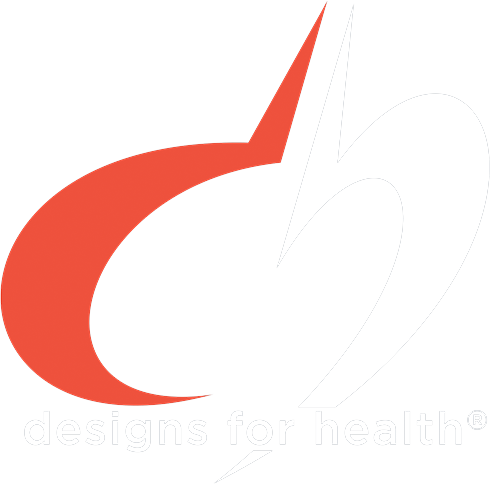


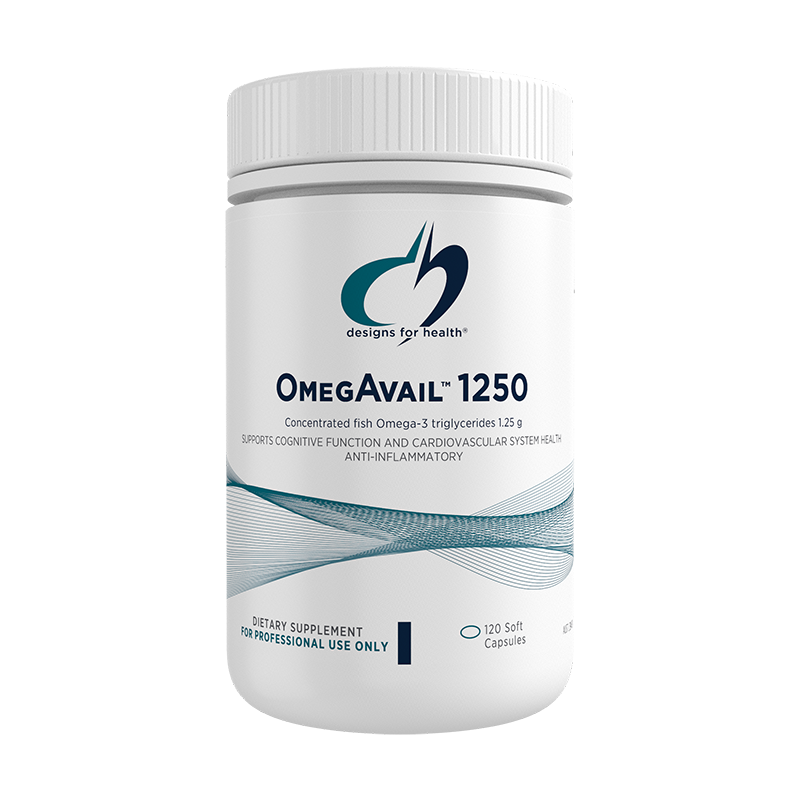
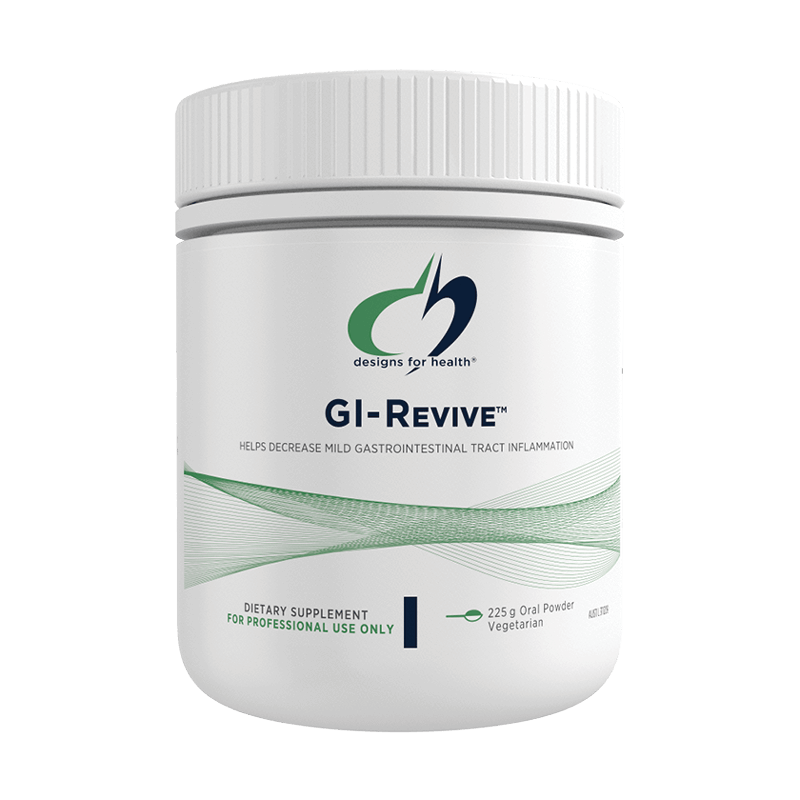
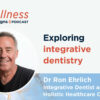 Exploring Integrative Dentistry with Dr Ron Ehrlich
Exploring Integrative Dentistry with Dr Ron Ehrlich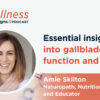 Essential Insights into Gallbladder Function and Care with Amie Skilton
Essential Insights into Gallbladder Function and Care with Amie Skilton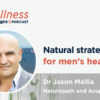 Natural Strategies for Men’s Health with Naturopath Jason Mallia
Natural Strategies for Men’s Health with Naturopath Jason Mallia